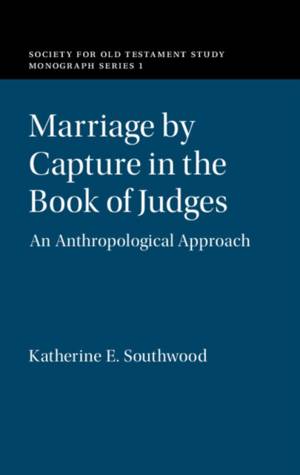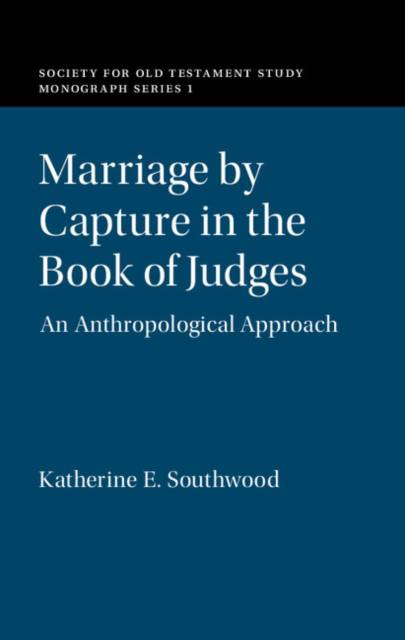
- Afhalen na 1 uur in een winkel met voorraad
- Gratis thuislevering in België vanaf € 30
- Ruim aanbod met 7 miljoen producten
- Afhalen na 1 uur in een winkel met voorraad
- Gratis thuislevering in België vanaf € 30
- Ruim aanbod met 7 miljoen producten
Zoeken
€ 172,95
+ 345 punten
Omschrijving
In this book, Katherine E. Southwood offers a new approach to interpreting Judges 21. Breaking away from traditional interpretations of kingship, feminism, or comparisons with Greek or Roman mythology, she explores the concepts of marriage, ethnicity, rape, and power as means of ethnic preservation and exclusion. She also exposes the many reasons why marriage by capture occurred during the post-exilic period. Judges 21 served as a warning against compromise - submission to superficial unity between the Israelites and the Benjaminites. Any such unity would result in drastic changes in the character, culture, and values of the ethnic group 'Israel'. The chapter encouraged post-exilic audiences to socially construct those categorised as 'Benjaminites' as foreigners who do not belong within the group, thereby silencing doubts about the merits of unity.
Specificaties
Betrokkenen
- Auteur(s):
- Uitgeverij:
Inhoud
- Aantal bladzijden:
- 280
- Taal:
- Engels
- Reeks:
Eigenschappen
- Productcode (EAN):
- 9781107145245
- Verschijningsdatum:
- 24/03/2017
- Uitvoering:
- Hardcover
- Formaat:
- Genaaid
- Afmetingen:
- 145 mm x 226 mm
- Gewicht:
- 449 g

Alleen bij Standaard Boekhandel
+ 345 punten op je klantenkaart van Standaard Boekhandel
Beoordelingen
We publiceren alleen reviews die voldoen aan de voorwaarden voor reviews. Bekijk onze voorwaarden voor reviews.











